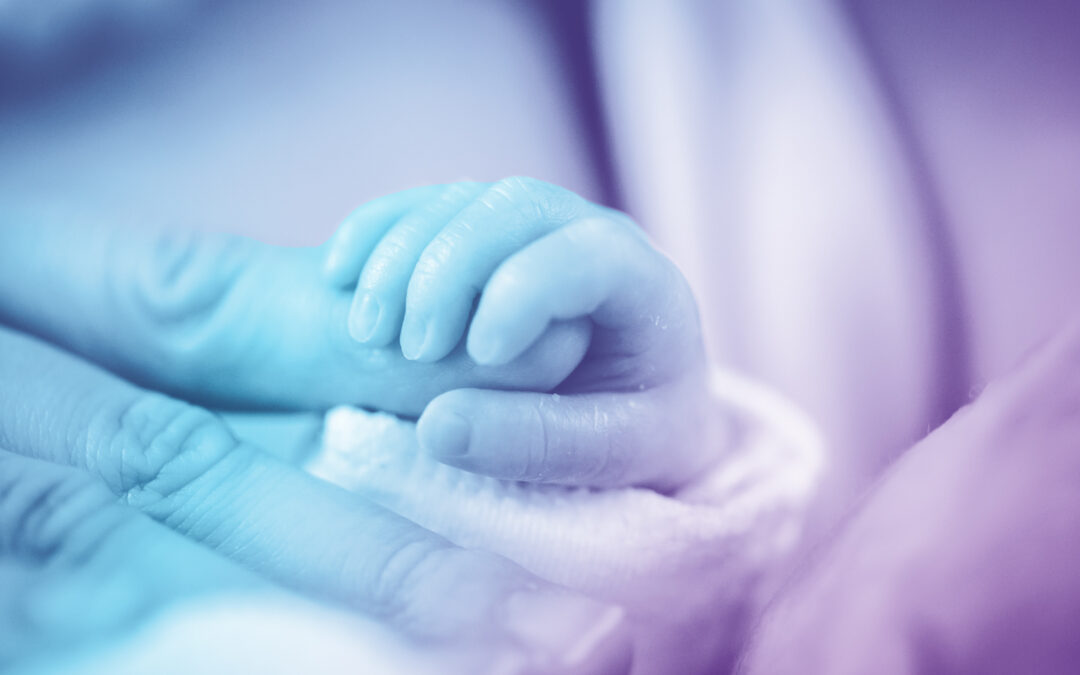How Much Alcohol Is Too Much? What You Need To Know About Fetal Alcohol Syndrome
Fetal alcohol syndrome or fetal alcohol spectrum disorders affect children of mothers who consumed alcohol during pregnancy. New mothers are often advised to abstain from alcohol during pregnancy to avoid harming their unborn baby. There is no known safe amount of alcohol that can be consumed during pregnancy to prevent fetal alcohol syndrome, so the best thing to do is to avoid all alcohol when you are expecting a child. Fetal alcohol syndrome and other related disorders can be debilitating to children and life-changing for a family. Here are some facts about this condition, things to look for in a suspected case of fetal alcohol syndrome and steps pregnant mothers can take to avoid harming their unborn baby.

Fetal Alcohol Syndrome Defined
According to the National Institute of Health, as many as 12,000 infants may be born with fetal alcohol syndrome each year. Fetal alcohol syndrome is a condition that ranges on a spectrum, with some children experiencing more debilitating effects than others. The condition can cause children to experience mild to severe physical development or growth problems, learning challenges and behavior issues. There are several different types of fetal alcohol spectrum disorders that a child can be diagnosed with.
- Fetal Alcohol Syndrome – The most widely known type of disorder associated with alcohol consumed during pregnancy is fetal alcohol syndrome. This condition can be the most severe of the fetal alcohol spectrum disorders. With fetal alcohol syndrome, children may have physical birth defects, intellectual disabilities, behavioral problems and communication impairments.
- Alcohol-Related Birth Defects – Another condition on the spectrum is when a child has an alcohol-related birth defect. Birth defects linked to alcohol consumption during pregnancy include problems with the heart, liver, kidneys, bones or hearing.
- Alcohol-Related Neurodevelopmental Disorder – Some children only present symptoms related to their brain’s development without any physical deformities. Children diagnosed with alcohol-related neurodevelopmental disorder may show signs of intellectual disabilities, behavior struggles, learning challenges, brain dysfunction and problems with the nervous system.
- Neurobehavioral Disorder Associated With Prenatal Alcohol Exposure – Another disorder connected to maternal drinking is neurobehavioral disorder associated with prenatal alcohol exposure. Children with this condition may have trouble functioning normally with social skills, cognition, self-regulation and academics.
Signs of Fetal Alcohol Syndrome
The first stage of a child being diagnosed with fetal alcohol syndrome is for the parents and medical providers to look for the characteristic signs of this condition. Here are some of the signs of fetal alcohol syndrome or fetal alcohol spectrum disorders:
Physical
Children with this disorder may have distinguishing facial features, such as small eyes, a thin upper lip, a slanted nose and smooth skin between the lips and the nose. They may also have defects with their limbs, fingers, joints, bones, heart or kidneys. They may experience slower than usual development and growth. Children with this syndrome may also have a smaller head circumference and brain size.
Behavioral
Behavioral and social symptoms may also be present. This may include poor impulse control, difficulty playing with other children, problems in school, challenges staying on task, impaired social skills and a poor understanding of time. They may also struggle with transitions to new activities or major life changes at home or in their school routine. Children with disorders related to maternal alcohol use may have poor grades at school as well.
Cognitive
There may also be signs of this disorder in the child’s neurological development. Children may show signs of balance or coordination problems. Attention span may be an issue along with reasoning, problem solving and judgment. Some children may have memory problems or difficulties understanding cause and effect related to consequences. They may also have mood swings and poor memory skills.
How Alcohol Affects Unborn Babies
Pregnant women or women who believe they may be expecting must not drink any alcohol to avoid the risks of fetal alcohol syndrome or other related disorders. Even just one drink may not be safe. Unfortunately, maternal drinking has increased in women aged 18 to 44 in recent years, with some pregnant women even reporting more binge drinking than in years past.
The problem with alcohol use during pregnancy is every drink the mother consumes enters into the fetus’ bloodstream through the umbilical cord and crosses the placenta. A developing baby doesn’t have the ability to metabolize alcohol quickly, so it causes much higher concentrations of alcohol in the fetus’ blood than an adult.
Heavy alcohol use and everyday drinking or binge drinking appear to have the most severe impact on the unborn child’s development. The more a pregnant mother drinks, the more likely her baby will be born with a fetal alcohol syndrome or related disorder. Additionally, the type of alcohol doesn’t seem to matter when it comes to what is harmful to a developing baby. Hard liquor, beer, wine or any other type of alcoholic drink all may lead to significant development problems and birth defects in a fetus.
Drinking when pregnant may also lead to other serious problems, such as a low birth weight, stillbirth, sudden infant death syndrome, prematurity or miscarriage. The problems with drinking alcohol during pregnancy may also cause maternal health issues. Women who drink during their pregnancy may be putting themselves at risk for falling, malnutrition, some types of cancers, using illegal drugs and other risky behaviors.
Treatment for Fetal Alcohol Syndrome
If a child is diagnosed with fetal alcohol syndrome or a fetal alcohol spectrum disorder, it’s important for the family to seek treatment to improve the child’s outlook and quality of life. There is no cure for fetal alcohol syndrome, so once a child is recognized as having the disorder, it will be present for their entire life. That’s why prevention is so important. Pregnant women or women who may become pregnant should completely eliminate alcohol from their diet to keep their developing baby safe. Women trying to get pregnant should also stop drinking alcohol to lower their child’s chances of developing this disorder.
Treatment for children with fetal alcohol syndrome may involve many different services to address behavioral, social, cognitive and physical impairments. Children who get earlier treatment and early intervention services have better outcomes than families who seek later treatment. Families should seek appropriate medical care, including specialist services from physicians with expertise in different parts of the body. A child’s medical team may prescribe different physical or occupational therapy treatments or medications to help with birth defects and cognitive impairments.
For behavioral issues and social skill problems, there are other types of treatments that help children with this disorder develop more appropriately and make progress. These children may qualify for special education services and other therapeutics in a classroom setting. Parents must also work together to create a stable, loving environment for a child with fetal alcohol syndrome.
How To Get Help
It’s vital to both the mother’s health and the unborn baby’s health for an expecting mother to avoid drinking alcohol during pregnancy. For most women, it’s easy to cut out that occasional drink they may have socially, but for others who may have a dependence on alcohol, it can be more difficult. Alcohol abuse brings with it a set of health problems including higher risks for many types of diseases.
Additionally, being pregnant can be a stressful time in a woman’s life due to hormones, medical changes and the anxiety of becoming a new parent. Pregnant women should work with their physician to get support from healthier sources, such as counseling and social groups of other expecting mothers, instead of turning to drugs or alcohol. If an expecting mother has a history of alcohol abuse, it’s important to seek professional help to prevent this problem from impacting the developing baby.
Pregnancy can be a challenging time, and it can be even more overwhelming if there is a history of alcohol abuse. If you or a loved one has an alcohol dependency problem, don’t be afraid of asking for help for recovery from alcoholism. Protect your future child by getting help from the staff at Clean Recovery Centers. Reach out to the caring professionals to make your family’s future brighter.
Sources:
- https://www.cdc.gov/ncbddd/fasd/facts.html
- https://www.mayoclinic.org/diseases-conditions/fetal-alcohol-syndrome/symptoms-causes/syc-20352901#:~:text=Fetal%20alcohol%20syndrome%20is%20a,alcohol%20syndrome%20are%20not%20reversible.
- https://www.cdc.gov/ncbddd/fasd/alcohol-use.html#:~:text=There%20is%20no%20safe%20time,to%20have%20abnormal%20facial%20features.
- https://www.healthlinkbc.ca/health-topics/tk3598
Recent Posts


